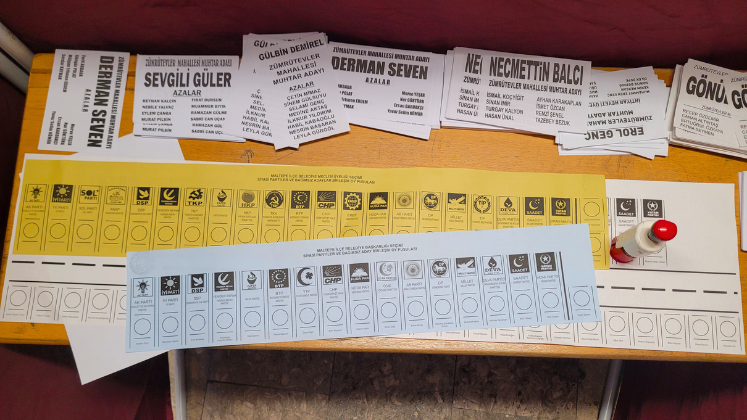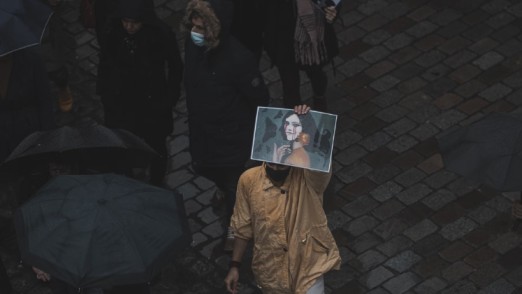After newly re-elected president Recep Tayyip Erdoğan suffered a heavy defeat in Turkey’s recent municipal elections, Sultan Tepe analyses the present landscape of political rhetoric and campaigns.

Turkey’s 2024 local elections
Recep Tayyip Erdoğan’s Justice and Development Party (AKP) came in second place in Turkey’s municipal elections on March 31 2024, losing control of major cities for the first time since 2002. Erdoğan’s crushing defeat in municipal elections, just eleven months after gaining a third term as president, deserves investigating.
Erdoğan is known for winning elections despite enormous hurdles, but the municipal elections revealed that he may have reached his limit. He thrived on polarising populist rhetoric that pledged to defend the Turkish Sunni majority against a variety of foes, including secular publics, Kurds, religious minorities (such as Alevis), and, more recently, sexual and gender minorities, among others. Nonetheless, the 2024 elections revealed the soft belly of Erdoğan’s adept capitalisation of polarisation and poverty-management centred welfarism.
Understanding why Erdoğan lost what appears to be unrivalled prominence in Turkey’s Islamic landscape requires us to look at a minor Islamist party in Turkish politics: the New Welfare Party (Yeniden Refah Partisi, or YRP), a hidden winner of the 2024 local elections and now Turkey’s third largest party.
Despite its recent establishment in 2018, the YRP represents a revival of Turkey’s first generation of Islamist parties, previously represented by the Welfare Party. Fatih Erbakan, the party’s head, is the son of the late Turkish Prime Minister Necmettin Erbakan, who pioneered Turkey’s Islamist Millî Görüş doctrine and formed the party that elevated Erdoğan to national prominence as Istanbul mayor in 1994. The New Welfare Party backed Erdoğan’s 2023 presidential campaign against Kemal Kilicdaroglu, a Kurdish Alevi minority candidate.
The 2024 local elections differed from previous ones. Erdoğan did not use his traditional polarising security-centered framework to avoid alienating the Kurdish vote he needed to control major cities, and the YRP, like other parties, ran an independent campaign and confronted Erdoğan head-on. Turkey’s Islamist parties have thrived by combining political Islamic rhetoric with a nationalist developmentalist ideology to meet the needs of low-income populations and the Islamic economic elite. With his now-infamous “one-minute” intervention, Erdoğan publicly denounced then-Israeli President Simon Peres’ stance and became an instant hero, particularly in Islamic communities. As the images from Gaza after October 7 haunted the populations of Turkey, the demands on Erdoğan to take decisive action against Israel increased. However, Erdoğan’s criticism remained primarily rhetorical.
In 2024, the YRP built its local campaign on how Erdoğan’s policies were deceptive, notably about Gaza and retirees. Erbakan argued that Erdoğan paid lip service for defending Muslims interests and reviving a pax Ottomana. Yet, as Erbakan said, “ships from Turkey’s ports continue to carry steel, spare parts, cement, barbed wire, and fertiliser to Israel. Is it acceptable? We are the descendants of the Ottoman Empire, which brought justice to the world for six centuries and abolished oppression.”
Erbakan supported his claims with official state trade data, TURKSTAT, and news reports that revealed that Turkey has been exporting many critical items to Israel since October 7. His campaign speeches repeated how, under Erdoğan’s leadership, Turkey sold Israel the barbed wires surrounding the Masjid al-Aqsa, preventing Muslims from accessing it during Ramadan, mobilising masses by asking, “For God’s sake, how can such a shame happen?”Turkey’s pro-Islamic parties rely on well-established networks, so Erbakan’s critiques were spread through conservative circles and had far-reaching consequences. Despite the secular opposition’s earlier criticism of Erdoğan’s stance toward Israel, the polarised environment in Turkey disguised these objections. Erbakan’s criticism was critical because, this time, an Islamist party questioned Erdoğan’s promises regarding defending Muslim rights.
Erdoğan’s clientelistic practices have succeeded in keeping Turkey’s low-income communities content. He lowered the retirement age to 40 before the 2023 elections, raising the total number of pensioners to 16 million and eventually winning enough votes, albeit in the second round, for a third term as president in 2023. Yet after the elections, hyperinflation and deteriorating living conditions led to some retirees earning only $231 per month, resulting in abject poverty due to a 65% inflation rate even according to the state’s conservative numbers. Despite mounting demands, Erdoğan declared he would not raise their salaries due to the economic crisis, while his expenditures in other areas remained unchanged. For some economists, it is not income disparities per se but the obvious consumption inequalities that fuel massive political outbursts. As a result, pensioner discontent became a major driving force in the elections. Fatih Erbakan capitalised on such statements, doubling down on his criticism, underlining the pensioners’ precarious situation, and pronouncing the end of Erdoğan’s Islamist welfarism that blended Islamic values and welfare policies.
Polarisation is a destructive democratic force, and Turkey’s quick transition from partially free to non-free status exemplifies how it stifles many democratic processes. Turkey’s Islamists were originally considered a democratising movement, emphasising rights, anti-corruption measures, and limits while promising a democratic atmosphere based on Islamic principles. Nonetheless, over the last few years, Turkey’s conservative organisations and Islamists have been complicit in Erdoğan’s autocratic grip and polarisation, implying that victory for the secular-centred opposition would put an end to the AKP’s political gains rather than a performance centred on clear and consistent Islamic values. After 22 years of AKP rule, the global transparency index ranks Turkey 115th out of 180 countries. Turkey’s inflation rate is one of the highest in the world, ranking alongside Venezuela, Zimbabwe, Argentina, and Sudan. The 2024 municipal elections show that Erdoğan has crossed the redlines of Turkey’s political Islam by giving up his leadership role in the Palestinian issue and his role as a protector of low-income communities. Erdoğan’s strategy of not running a security-focused campaign to avoid alienating the Kurds, particularly in Istanbul, led to the stunning election results on March 31. Thus, Erdoğan avoided using polarising language while declining state funds, preventing him from adopting his pre-election clientelist schemes. Hence, inadvertently, the elections highlighted how only breaking the cycle of polarising discourses, value monopolies, and clientelist policies could change Turkey’s political environment, giving the opposition a stronger voice.
The YRP’s compelling objections to the AKP’s increasingly inadequate welfare policies and its challenge to Erdogan’s hegemony on political-religious discourse suggest that politics in Turkey can go beyond the secular-versus-Islamic dichotomy. Such depolarisation has the potential to restore democracy in Turkey and bring back the democratising role of conservative and pro-Islamic groups that gave hope to many during the 1990s.





